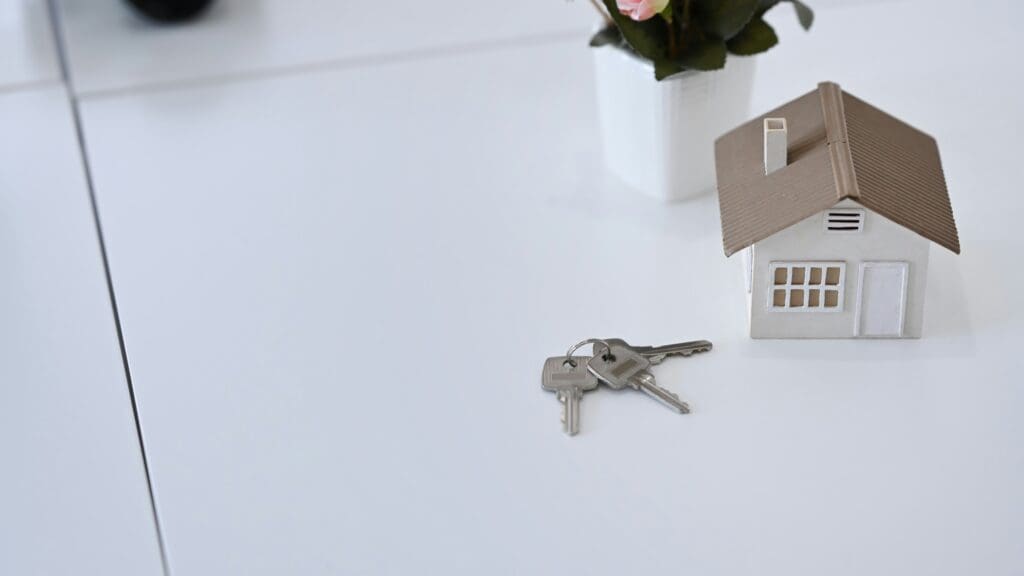Can You Sell a House with Squatters?

Estimated reading time 9 minutes
Being a property owner having to encounter squatters can be a truly stressful time. The law can be a little confusing and knowing whether you are dealing with squatters or trespassers can make things complicated. Despite you potentially thinking of them as one and the same, you’d be wrong, and this is where you could find your legal rights not as clear as you may have thought. Luckily, you can sell a house with squatters should you need to, and, in this blog, we explain all you need to know so you can sell your home fast and avoid any difficulties with squatters moving forward.
What is a squatter?
A squatter is someone living in a property without any legal right to do so. A squatter is not somebody who is living in a property and has fallen behind on rent. As we referenced in the intro, there is often confusion over the difference between squatters and trespassers. The difference is actually quite simple, where a squatter lives at the property without permission. A trespasser enters another person’s property illegally. Someone squatting is living in a home they shouldn’t, whereas someone trespassing is entering a property they have no right to for a short time.
It can be awkward, uncomfortable and even intimidating trying to get squatters out of a property you own and selling it may be just as difficult, especially if you are unsure of your rights and theirs. The term squatters’ rights is often talked about, but the understanding of it is often made blurry. In this blog, we hope to clear that up for you so you can sell a house with squatters compliantly and quickly.
What are squatters’ rights?
Before trying to sell your house with squatters, it may pay to be fully clued up on what rights, if any, the squatters have.
If the squatter has lived in the property for at least ten continuous years, without the owner's permission but has acted as if they have owned it, they can apply to become the registered owner of the property or land. Should this property not be registered with the Land Registry, the period of continuous habitation must be at least 12 years before an application for ownership can be made.
This may not sound great in the first instance for you as an owner, but it would be unusual for you to leave part of your property portfolio forgotten about for ten years or more!
If you did, a squatter could now complete a request for adverse possession. This goes to the Land Registry who will decide whether this ownership application is acceptable. If they deem it not to be, you stay the owner of the property. If they believe there is a suitable claim, you will have 65 days to either reject or accept the decision.
If you, as an owner, act within these 65 days and reject the squatter's claim, ownership will normally remain yours. If you choose not to object within 65 days, ownership will be passed onto the squatter. Another asset useful to the squatter is that should the initial application have been turned down, they can reapply after two years, as long as the owner has not tried to claim back the home or force the eviction of the squatter. This may work in the squatter's favour as no action would have been taken by the owner even after the initial adverse possession application.
Perhaps not the news you wanted to hear but all is certainly not lost if you wish to sell as we will discover shortly.
Can police remove squatters in the UK?
If you are trying to sell a house with squatters, you must act following the law. Simply going into a home and trying to kick someone out could result in a dangerous scenario and potentially see you breaking the law without being aware you have. It is in fact, illegal to try to evict squatters by force or by threatening them. This could see you prosecuted and make the sale of the house much more complicated.
Therefore, it is best to get the police involved if you believe squatters have taken over your property. The tricky thing here is that often, the police will treat squatting as a civil matter rather than a criminal matter. If you remember earlier, we mentioned the difference between trespassing and squatting. This is why police may look at a squatting incident as civil and not criminal. A trespasser has illegally entered a property, possibly through forced entry. A squatter will just “walk-in” and make it their home with no signs of criminal damage. Often citing that the door was already open when they got to the home.
That being said, the police do have powers to arrest squatters, and they don’t even need a warrant to do so. The Police and Criminal Evidence Act 1984 allows officers to enter a property and arrest someone for squatting. With the Legal Aid Sentencing and Punishment of Offenders Act 2012, squatters in residential properties can be found to be committing a criminal offence if:
- They entered the home and remained there as a trespasser.
- They know or should know that they have trespassed.
- They are living in the property or plan to live there.
- They have been requested to leave by the displaced occupier or protected intended occupier but do not leave.
This may result, in a fine of £5,000 and/or a prison term of 6 months.
How can you remove squatters from a home?
As mentioned above, contacting the police is your first port of call. They have the legal power to remove squatters from your property. However, this only applies to residential properties. If you own commercial property, the police can only remove the squatters if a criminal act has been committed.
After contacting the police, you can serve an eviction notice. Sometimes, this is all that is needed; however, it also sometimes doesn’t work. If your eviction notice has resulted in no change, you can apply for an Interim Possession Order.
Issuing an Interim Possession Order
If you have discovered your property has been taken over by squatters and this has become known to you within the past 28 days or less, you can apply for an Interim Possession Order or IPO.
To do this, obtain the N130 form from the government website. Submit this to your local court. You must then attach a copy of the form to the door of the home the squatters are living in or post it through the letterbox. You could do both to be sure they have got it.
Along with the form, you’ll need to give the squatters the relevant paperwork for them to outline their reasons for occupying the property as well as notify them of the time, date and location of the scheduled court hearing. This must be done at least 5 days before the hearing.
At the hearing, a judge will assess both sides and come to a conclusion. Should it be in your favour, the squatters will be ordered to leave and must do so within 24 hours. If they do not, they will be arrested and potentially face a prison sentence. A further part of the order will also ban them from going near your property for at least a year.
How can I stop squatters?
Many squatters tell police the property was empty and open when they found it. Whilst this may not always be true, it does point to a lack of resilient security measures at the house.
Look at upgrading your security so squatters are put off from trying to find a way in. This could include:
- The addition of an alarm system
- Security cameras in key areas
- Security lights near doors and driveways
- That all doors and windows have robust locks
- The use of timers or smart systems for lights to indicate the property may be occupied.
In addition, you can also think about how your property looks. The chances are that this home is a buy-to-let property, so you are unlikely to be in it or around it all the time. As a result, look at visiting often and remove any build-up of mail or rubbish that may have accrued. You could also look at letting your neighbours use your driveway to further enhance the effect of someone living there.
Lastly, shut off the water, gas and electricity. Even if a squatter has been and gone in the time you return, you could find a nasty bill waiting for you and no way of finding who is responsible for causing it.
How do you sell a house with squatters?
If the legal paperwork and the challenges of trying to remove a squatter have proved complicated, time-consuming or expensive, you could look at selling your home. Selling via the traditional market will be tough. Estate agents may be unwilling to try and sell a home that could be fine one minute and potentially ruined the next. This of course also comes with a cost to you which can be quite high with all the fees estate agents normally charge. In simple terms, trying to sell a house with squatters via an estate agent is not a route worth pursuing. It’s slow, expensive and pretty much impossible.
You could look at property auctions, but this could also be similar to an estate agent. Property investors at auctions may want to flip properties but they certainly don’t want the added hassle of dealing with squatters. Furthermore, the added insurance risk posed by squatters occupying a home is likely to deter anyone from making a bid.
This leaves you with the option of a cash house buyer. It isn’t necessarily everyone’s first choice, but it works. The majority of cash house buyers are happy to buy any property, regardless of its condition, its location or whether it has squatters involved. It’s a smooth process that works to a timeframe that suits you, at Bettermove, we can complete it in as little as seven days if necessary. Compare that to the length of time it takes to complete the process of evicting squatters, and you not only save yourself time but money too.
It's fee-free too, so the money you are offered is the money you receive. Sell your house for free and you’ll avoid not only costly estate agent and auction fees but also the legal expense that trying to evict squatters will incur.
Speak to Bettermove today and see how we can help you sell your house with squatters in as little as seven days, at no cost to you and with no risk of a chain break.



